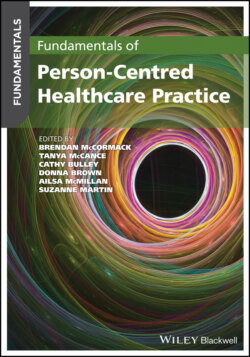Читать книгу Fundamentals of Person-Centred Healthcare Practice - Группа авторов - Страница 102
Activity
ОглавлениеWhat is professionalism?
In this first exercise, you are invited to think about a person that you consider to be highly professional.
What is it about that person that you admire?
What does this tell you about the meaning of professionalism?
In your thinking you may have considered the knowledge, skills, attributes and values of a professional. You may have also considered how they present themselves, their behaviour and the way their practice is regulated.
Why is it necessary to define ourselves as professionals? Griffiths and Tengnah (2017, p. 46) suggest that the purpose of professionalism is fourfold: to protect the public; to deter unprofessional or unlawful actions; as a regulatory framework; and to enable learning by other members of the profession. As with many concepts, it is sometimes easier to develop an understanding of what professional practice is by considering behaviour that is unprofessional. Perhaps this may relate to a person's behaviour, for example how they treat you or how they treat other people. It may be in their attitude to others, putting their own needs before those of people in their care, a disregard for professional boundaries or not following policies and procedures. Professional behaviour may also be reflected in how people present themselves, for example timekeeping, their tone of voice, whether they are honest. Furthermore, a healthcare worker's behaviour outside work may also cause concern professionally, such as inappropriate use of social media or disregard for the laws of the country.
